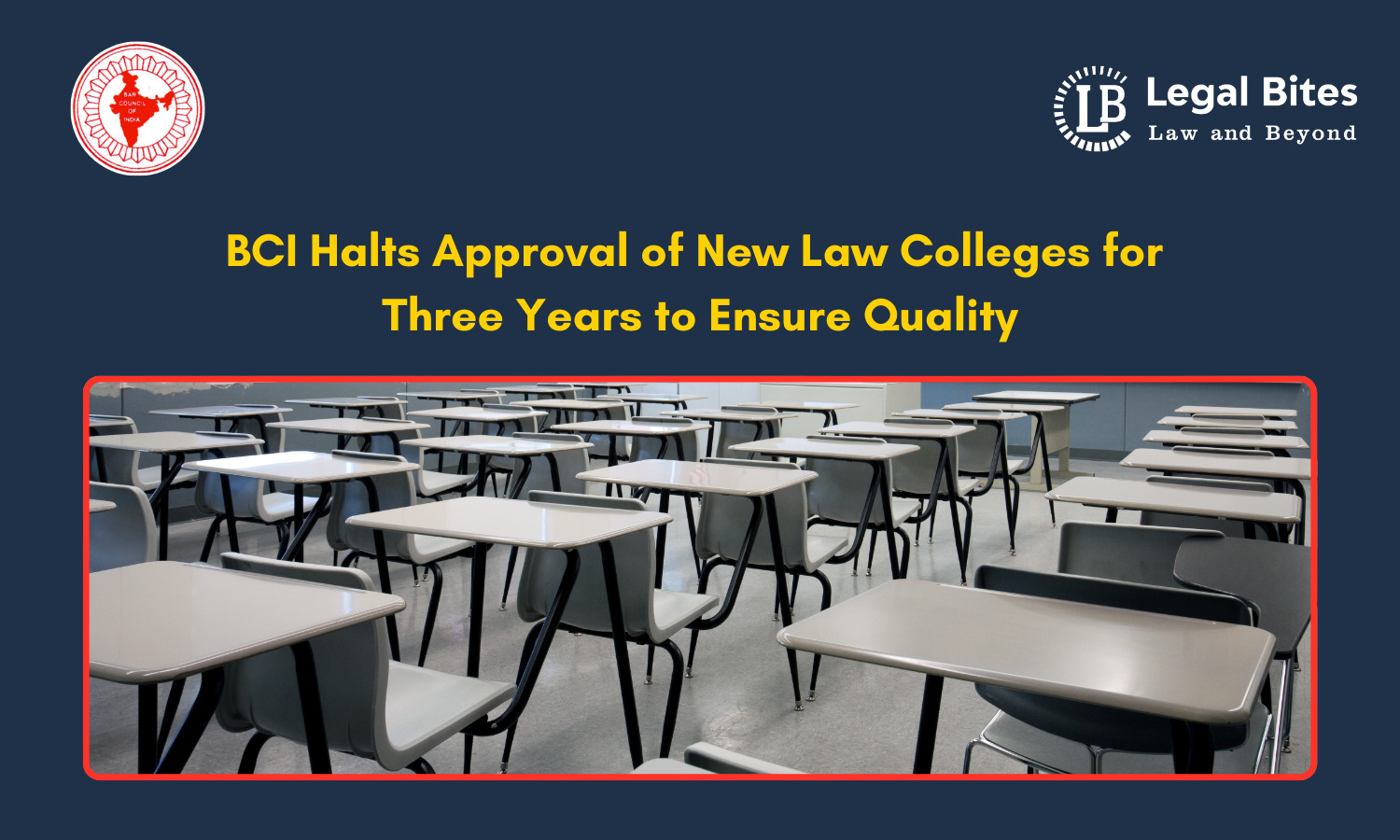
In a decisive move to address the mushrooming of substandard law institutions, the Bar Council of India (BCI) has imposed a three-year moratorium on the establishment of new law colleges and the expansion of existing ones. The decision, encapsulated in the Rules of Legal Education, Moratorium (Three-Year Moratorium), 2025, aims to ensure that legal education in India meets rigorous academic and professional benchmarks.
Under the new framework, no proposal for setting up a Center of Legal Education (CLE) will be entertained unless it receives specific prior approval from the BCI. This restriction also applies to the introduction of new courses, additional batches, or increased student intake in existing colleges.
Why the Freeze?
The BCI cited a range of pressing concerns:
- Commercialisation of legal education is leading to compromised academic quality.
- Unregulated affiliations are granted by universities without proper inspection.
- Deficient infrastructure and a shortage of qualified faculty.
According to the BCI, these issues have contributed to a dilution of legal education standards, jeopardising the competence of future advocates.
Compliance Crackdown
During the moratorium period, the BCI will conduct stringent inspections of existing institutions. Colleges found violating prescribed norms may face:
- Withdrawal of BCI approval.
- De-recognition of degrees.
- Disqualification of graduates from enrollment as advocates under Section 24 of the Advocates Act, 1961.
- Civil or criminal action against management.
Exceptions to the Rule
The moratorium includes narrowly defined exceptions. Institutions that cater to:
- Scheduled Castes/Scheduled Tribes,
- Economically Weaker Sections,
- Persons with disabilities, or
- Aspirational and tribal districts,
may be considered for approval if they demonstrate genuine need and meet stringent infrastructure and faculty standards. Proposals from state or central universities and government-recommended entities will also be evaluated under strict guidelines.
The Approval Process
Even for exceptions, the process will follow three essential steps:
- State Government/Ministry NOC based on regional necessity.
- University affiliation in compliance with the Rules of Legal Education, 2008.
- Detailed BCI inspection before final clearance.
Impact on Legal Education
This move represents a shift from quantity to quality in the legal education sector. By halting indiscriminate expansion and enforcing strict compliance, the BCI aims to safeguard the profession’s integrity and ensure that future advocates are trained in institutions that meet the highest standards.
Click Here for the Official BCI Notification on Law Colleges Ban